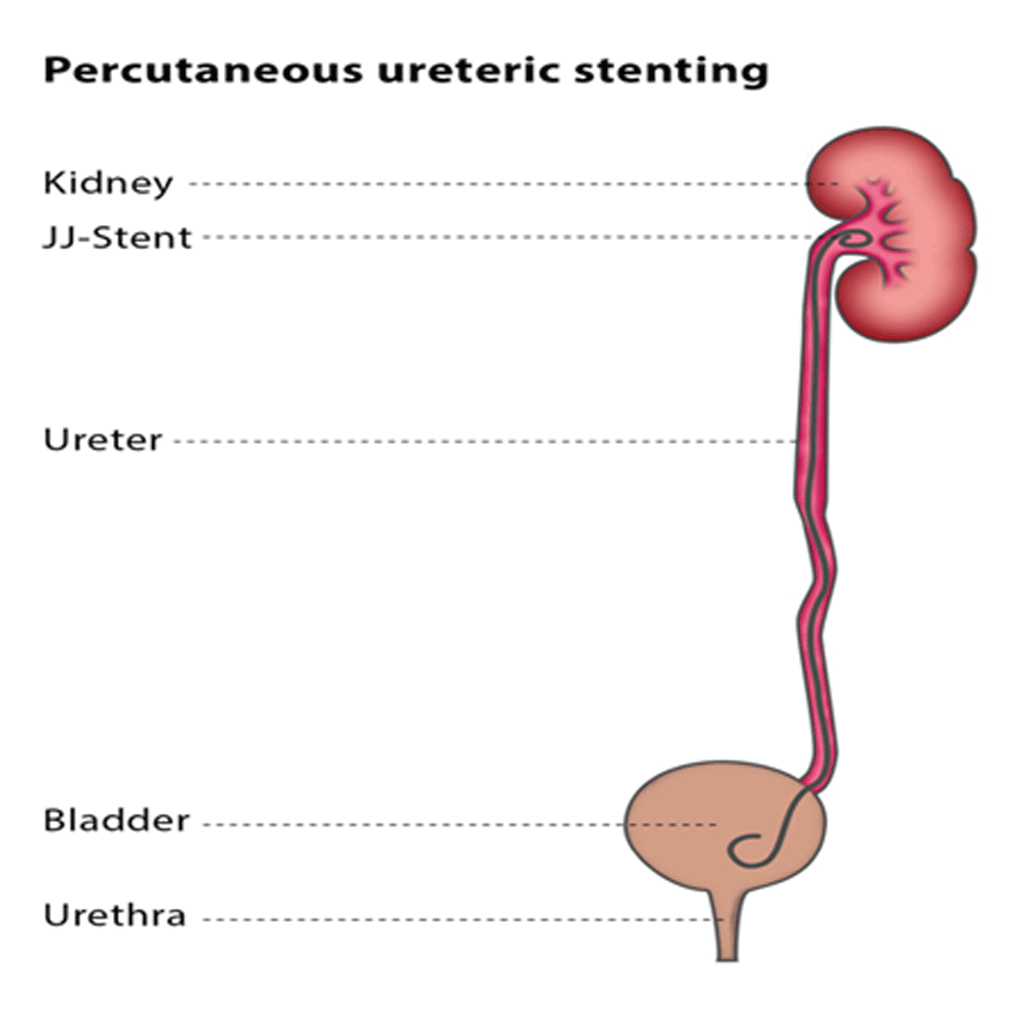URETERIC STENTING
Patient Education Material
A ureteric stent (also called a J-J stent or double-J stent) is a thin, flexible plastic tube that is curled at both ends to avoid damaging the kidney and urinary bladder and to prevent it from dislocating. The stent is placed so that its upper end is in the kidney and its lower end is in the urinary bladder.
Ureteric stenting is the procedure in which stents are inserted into the ureter through the skin and via the kidney, to allow urine to pass from the kidney to the bladder.
You will lie on your stomach, usually with one side slightly raised on a pillow, and will receive an injection of a painkiller and a sedative. The interventional radiologist will insert a needle through your skin and into your kidney under the guidance of ultrasound, X-ray or CT. If you already have a nephrostomy catheter in place, the interventional radiologist will use this as the entry point for the needle into the skin.
The interventional radiologist will use the needle to insert a wire, which is then used to guide a nephrostomy tube into your kidney, and a catheter, which is led through the ureter and into your bladder. At this stage, you may experience discomfort in your bladder. The interventional radiologist then places the J-J stent over the wire. You may also have a nephrostomy catheter placed in your kidney to drain urine externally.
A ureteric stent must be changed every three to six months. This is usually performed as an outpatient procedure.

Ureteric stenting is performed when long-term urinary drainage is needed. The procedure is often more favourable than nephrostomy, which can have a larger effect on the patient’s quality of life.
It is possible that you will experience minor bleeding from your kidney after the nephrostomy, though severe bleeding that requires treatment occurs in less than 5% of patients. In less than 1/500 patients an organ near the kidney is injured during the nephrostomy. Although temporary low-grade fever is common after the procedure, a high fever occurs in around 1-3% of patients, which is usually the result of an unresponsive infection.
Kindly contact:
- One PKLI Avenue, DHA, Phase-6, Lahore, Pakistan.
- info@pkli.org.pk
- +92 42 111 117 554

